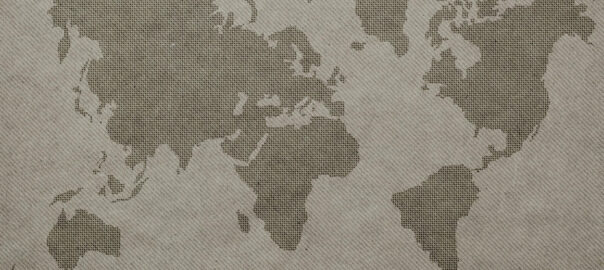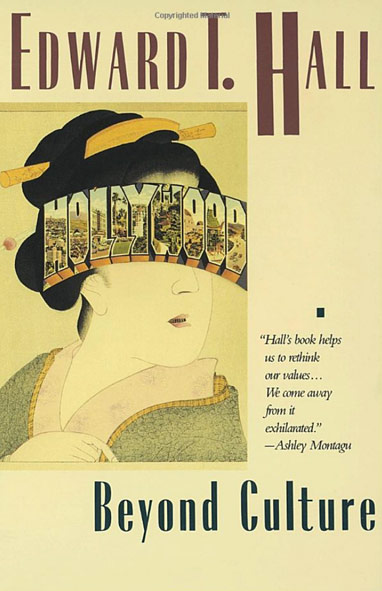
Beyond East and West: Human Nature and World Politics
John Bell | December 21, 2022
As someone both Canadian and Lebanese, the issue of East and West has always interested me. I was born into it, it’s the story of my family, and then became my lifelong career as diplomat and mediator.
I was born in Lebanon, a country that, in the 1960s, was a lively forum for the meeting of East and West. Beirut, with its St. Georges and Phoenicia hotels, was an emblem of intercontinental travel and cosmopolitanism. The Lebanese are Easterners, but also polyglots and cultural chameleons, and so, they once represented an intimate blending of the two.
My first eight years were in Tripoli, Lebanon, an Arab city whose prominent monument is the Crusader castle of St. Gilles—a reminder that the battles of East and West go deep. But I was mostly raised in Canada, and so I could switch-hit between being Lebanese and Canadian. It remains interesting to see which ethnicity people decide I am.
My background spurred me to pursue a career as a diplomat and international mediator that has spanned a quarter century of working in the Middle East. I have lived in Cairo, Jerusalem, Gaza and Beirut, and my work crossed Arab geography, from Casablanca to the relatively unknown region of Mahra, in Yemen.
Cultural differences are woven into a diplomat’s work and manifest in varying negotiation techniques or in communications styles (Easterners like to maximize position before sitting down, including through conflict, while for westerners, war is the last resort, after talks fail). As I was once told, Omanis don’t hear anything unless someone is whispering, and Americans don’t listen unless, metaphorically, someone is screaming.
Although diplomats are experienced in reading other cultures, many suffer from an unconscious cultural autism and meetings can devolve into a ‘miss’—mere ships passing in the night. Those from both worlds have an advantage: they are ‘bifocal’ and can better see the world through two cultural lenses, if not always in perfect harmony.
Experience and intuition—even birth—worked together to construct a sense in me a that East and West were profoundly and positively linked. So, it was quite a revelation when I read Idries Shah’s The Sufis and discovered his explanations of the many interesting linkages between the two.
In this seminal book, Shah goes beyond the well-known idea that Islamic civilization preserved Greek philosophy and science for later transfer to Europe. His exegesis is of an organic, living process of knowledge from the East influencing key Western figures such as Chaucer, Dante, St. Francis, and even, some believe, Shakespeare. The frames of contact included The School of Translators in Toledo, the Order of the Garter, the Normans of Sicily and the Templars. For example, even the tale of William Tell originated in Faraduddin Attar’s ‘Parliament of the Birds’.
As a great fan of’ ‘tarab,’ a hypnotic form Arabic music sung by stars such as Umm Kalthoum and Sabah Fakhri, it was a pleasure to learn that the term Troubadours, and the development of chivalry and romantic love in Europe, were rooted in that Arabic word, with its multiple meanings.
Idries Shah was himself of East and West, a child of an Afghan-Indian father and Scottish mother, and his body of work is the very embodiment of the linkage between the two worlds. His contribution of passing deeper patterns of knowledge from the East to the West is premised on the idea that the West is potentially fertile ground for his ideas to blossom.
Today, extreme political positions and polarization are on the rise. These fixations are fed by resentment of past defeats or suffering, or imaginings of compelling—if unachievable—ideals. Many of our political leaders play their citizens like marionettes, instinctively using cultural conditioning and untamed emotional states, and abetted by today’s great accelerator, digital technology, to pursue grand schemes that promise reward, but deliver destruction. Yet, as much as we can see others being manipulated or blindly caught up in the herd, we are often oblivious when it happens to us.
Such problems are beyond East and West. They are part of a human inheritance, an old mind built to survive occasional existential threats on the savannah, not the constant minute-by-minute pings of the digital world. Yet, we have never fully tamed this mind, nor are fully aware of its operation.
Diplomats and mediators are hard at work at the coal-face trying to create a semblance of order amidst this chaos, but methods are old, assumptions untested, and knowledge of human nature, weak. International politics can teeter on such unsound foundations, as we have seen in the past in the Middle East, and as acutely now, in Ukraine. We need a degree of greater knowledge about ourselves to manage international crises, and Shah’s works are an antidote to the knot of habits, instincts and conditioning that make up the building blocks of cultural misunderstanding and group madness.
The core tensions between nations and cultures derive from patterns of tribalism that have evolved over millions of years. An excessive sense of tribal supremacy and dominance can cause unnecessary conflict and suffering. This all-too human tendency can be tempered by greater perspective and a view of a larger context. This is where Shah’s work, and its provision of larger patterns, can help as do the more recent efforts by scholar and scientist Iain McGilchrist and his exposition of the workings of the right and left hemispheres of the brain. Both encourage and inform a greater flexibility of mind that is critical for the development of better international relations in the future.
John Bell is Director of The Conciliators Guild. He is a diplomat and mediator who has worked for over 30 years on Middle East politics with the Canadian government, the United Nations and several international mediation and peace building organizations. He is also the author of the book, How to Tame the Political Animal: The Missing Piece.
Recent Blogs
- An Old Story About Metaphysics
- The Conditioning Machines in Our Back Pockets
- Out on a Limb: The Danger of our Innate Shortsightedness
- Edward T. Hall: Culture Below the Radar
- The Half Brain Method
- 'He Who Tastes Knows': Contemporary Sufi Studies and the work of Idries Shah
- "They Saw a Game"
- A Funny Thing Happened on the Way to Enlightenment
- Finding the Right Way Home
- Time and Self
- Escaping the Either/Or Thinking Trap
- Looking Up, Looking Out
- Conditioning and the Gendered Brain
- New World, Same Mind?
- One Small Word
- Meaning: The Enduring Gift to Spirit
- Beyond East and West: Human Nature and World Politics
- Forest Smarts: A Part of or Apart From?
- How to Improve Group Decision-Making
- We Know More Than We Think We Do
- How Deep Can a Story Go?
- Lost and Found: An Encounter with the Intuitive Mind
- The Devil’s Tuning Fork
- Welcome to The Human Journey Blog

